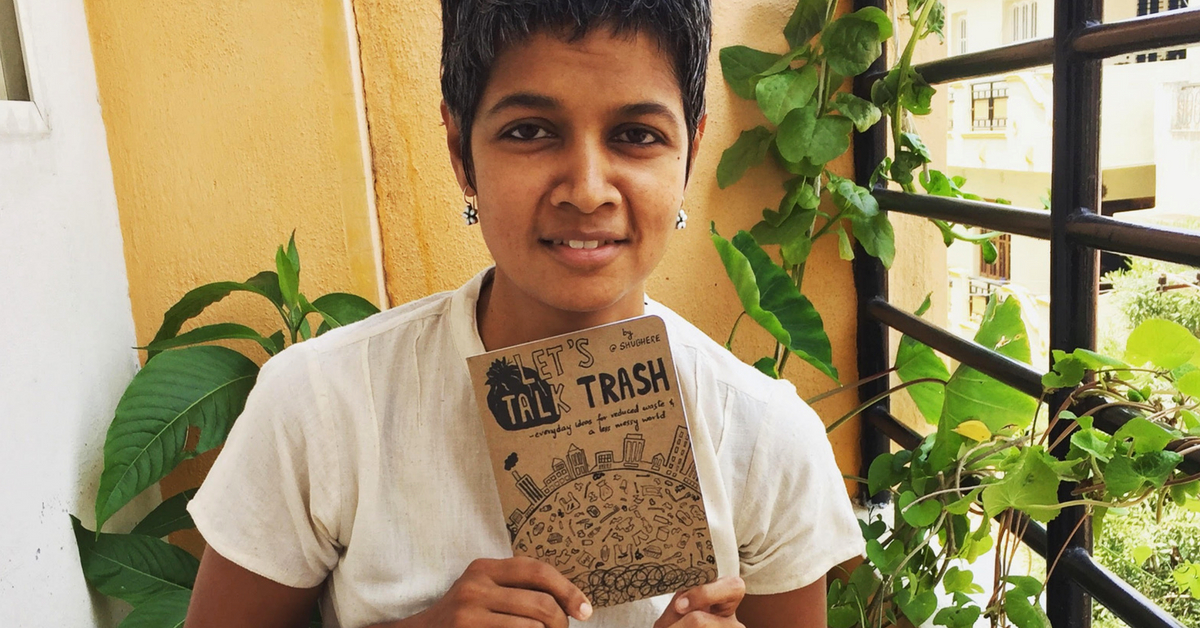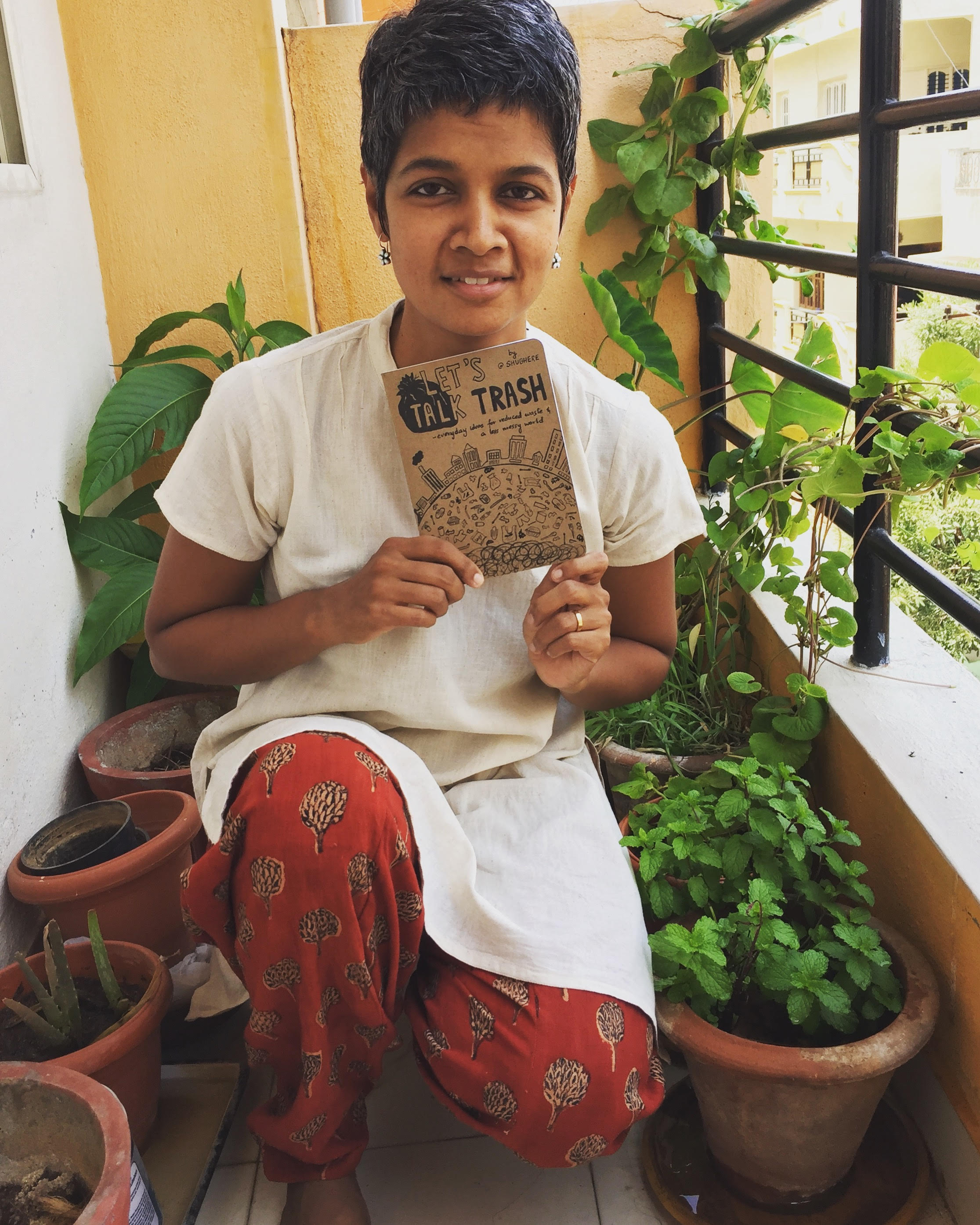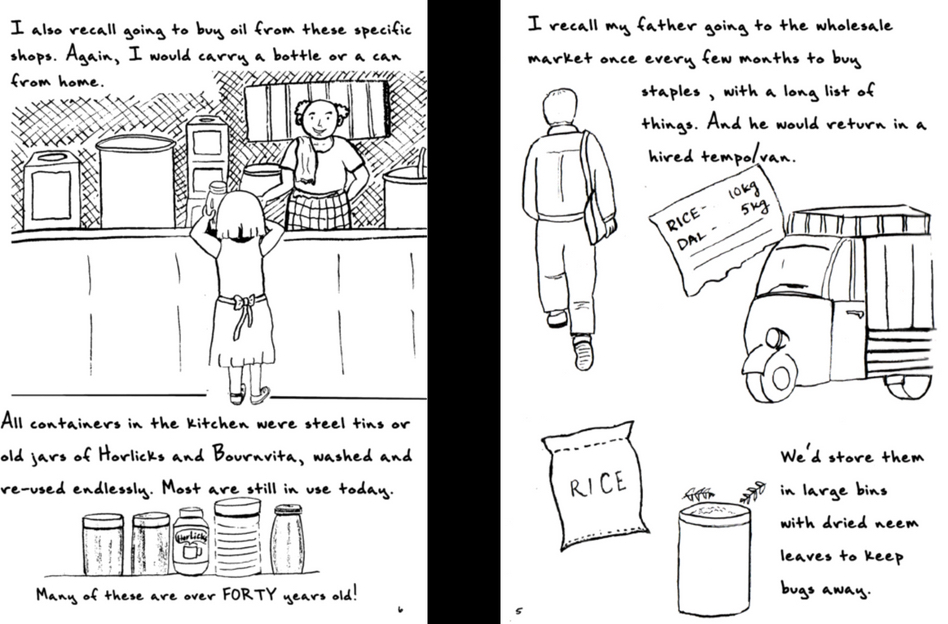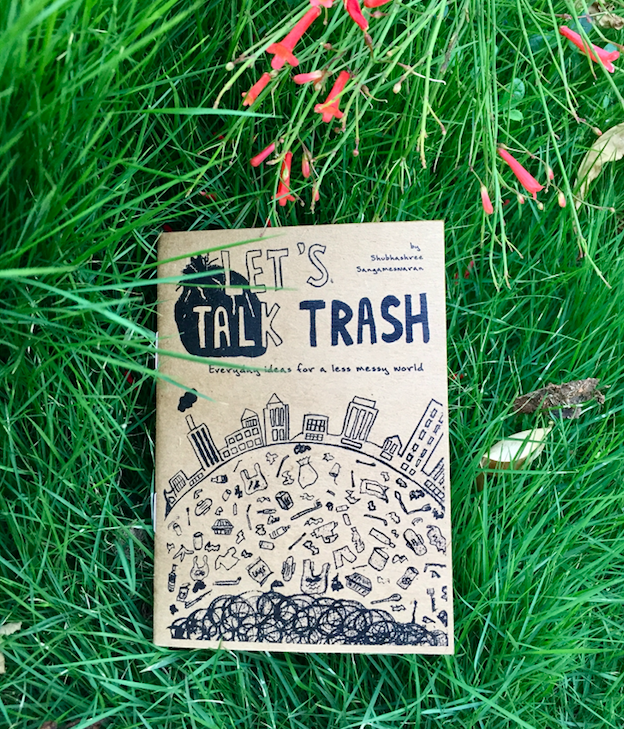Here’s Why This Hyderabad Woman Wants Us All to Start Talking Trash
Shubhashree Sangameswaran pieces together text and simple illustrations to highlight the extensive amount of trashing resulting from our disposable way of living to how one can consciously participate in cutting their wastage down.

If not you, your parents must remember the times when they were assigned the task of collecting milk from grocery shops in metal canisters and glass bottles, and when using plastic bags to collect garbage was unheard-of, because households centred on a culture of low consumption and frugal lifestyles.
We have come along a long way since then and even as we are thankful for food delivery services that are only a call or an app away, the amount of plastic containers piling up in our homes is something most of us really need to ponder over and act fast.
To think about it, our earlier generations were quite effortlessly running ‘zero-waste’ households. From cloth bags for groceries and minimal food waste to glass bottles and metal containers for storing condiments and grains, they managed their waste quite efficiently and made sure that only items that could not be reused any further headed to the garbage bins.
At present, an average urban dweller generates about 1.2 kilos of waste on a daily basis, and we are only talking about Tier I cities, where the population count can exceed millions. However, even though the alarming consequences of poor waste management and inconsiderate trashing have begun to show its ugly effects to both terrestrial and marine ecosystems, many do not understand the gravity of the situation and refuse to take it seriously.
Disturbed by the precarious state that we are leading our planet towards, Hyderabad resident Shubhashree Sangameswaran took to illustrating to bring attention to the perils of plastics and how our collective efforts could still salvage earth from the damage we have already inflicted upon it.

In her book, ‘Let’s Talk Trash’, she pieces together text and simple illustrations and takes one through the trajectory of highlighting zero-waste lifestyles of the olden days to the extensive amount of trashing resulting from our disposable way of living to finally how one can consciously participate in cutting their wastage down through simple steps.
And all of this has been illustrated and detailed in an engaging manner that both kids and adults would find entertaining and appealing.
“Having grown up in Bengaluru in the eighties, I have personally seen my parents and grandparents producing little or no waste from their households, who quite literally believed in frugal lifestyles. Collecting milk in steel cans from milk-vending booths was something I used to do and old Horlicks or Bournvita bottles were used as containers, of which some still line up our parents’ kitchen shelves and are as old as 40 years. However, today, given the lifestyles we have become accustomed to,, it would take considerable effort on our part to change our habits for the better good of our environment,” says Shubhashree to The Better India.
Subhashree comes from an engineering background and the idea of practising a zero-waste lifestyle had been lingering in her mind for a couple of years.

However, it was only after she took a break from her job in IT sector and came across the endeavours of early zero-waste activists Lauren Singer and Ben Jonson was she motivated to think about consumption and wastage.
“The right opportunity popped up through ‘The Sketchbook Project’, a global sketchbook based art project by Brooklyn Art Library, under which anyone could participate and hence, Let’s Talk Trash came to being. The book need not be limited to children just because it contains an illustrated narrative to discuss a subject so consequential to our existence and can be equally referred by adults alike for ideas that will help to lessen our day-to-day contribution to waste,” Shubhashree adds.
You may also like: Teach Your Kids the Right Way to Dispose Used Bulbs, Tube Lights & Batteries!
Starting with three habits that one can begin with, i.e., avoiding bottled water, refusing plastic straws and plastic bags, the book then details areas in one’s house like bathrooms, kitchens and wardrobes where one can make changes to and replace plastic components with eco-friendly alternatives.
It then moves on to one’s workplace and travel habits where similar initiatives can be taken up. Shubhashree even illustrates how bringing up one’s babies can be done in a green manner by opting out of disposable diapers and plastic toys.
While Shubhashree is in the process of practising zero-wastage herself, she hopes to help raise awareness as well as motivate those who want to make the right choices for the sake of the environment through her book.

As for future plans, she intends to take Let’s Talk Trash to schools and educational institutions as with kids, it is never too early to start and helping them become sensitive to the environmental mess at an early age will motivate kids and through them, their parents to shift to wastage-free lifestyles.
Priced at ₹140, these books also make for excellent gifts that you can buy online here. To know more, you can write to Shubhashree at [email protected].
(Edited by Gayatri Mishra)
Like this story? Or have something to share?
Write to us: [email protected]
Connect with us on Facebook and Twitter.
NEW: Click here to get positive news on WhatsApp!
If you found our stories insightful, informative, or even just enjoyable, we invite you to consider making a voluntary payment to support the work we do at The Better India. Your contribution helps us continue producing quality content that educates, inspires, and drives positive change.
Choose one of the payment options below for your contribution-
By paying for the stories you value, you directly contribute to sustaining our efforts focused on making a difference in the world. Together, let’s ensure that impactful stories continue to be told and shared, enriching lives and communities alike.
Thank you for your support. Here are some frequently asked questions you might find helpful to know why you are contributing?


This story made me
-
97
-
121
-
89
-
167













